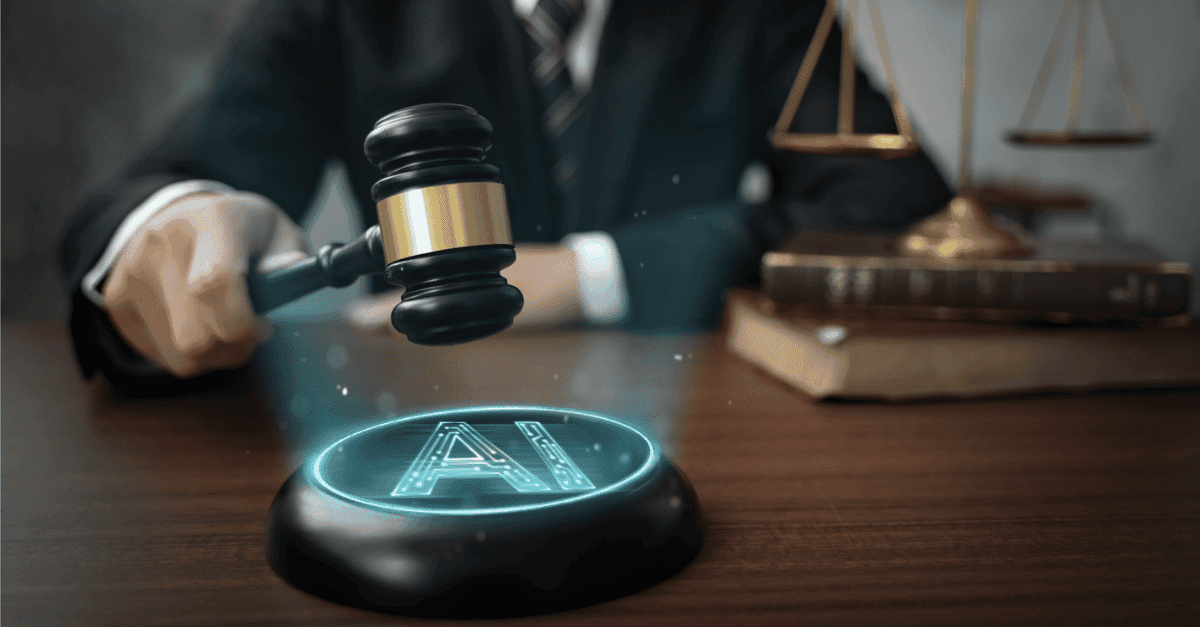Navigating the Ethical Implications of AI in Legal Practices
 In the evolving landscape of legal practices, artificial intelligence (AI) is proving to be a game-changer, especially in mass tort cases. While AI brings efficiencies and capabilities, it’s crucial to address the ethical implications that come with its use. Issues like bias in AI algorithms, data privacy, and the need for transparency and accountability are essential to consider. Let’s explore these concerns and discuss how law firms can responsibly integrate AI while maintaining high ethical standards.
In the evolving landscape of legal practices, artificial intelligence (AI) is proving to be a game-changer, especially in mass tort cases. While AI brings efficiencies and capabilities, it’s crucial to address the ethical implications that come with its use. Issues like bias in AI algorithms, data privacy, and the need for transparency and accountability are essential to consider. Let’s explore these concerns and discuss how law firms can responsibly integrate AI while maintaining high ethical standards.
Bias in AI Algorithms
One of the most pressing ethical issues in AI is algorithmic bias. AI systems learn from data, and if the data is biased, the outcomes will be too. This can be particularly concerning in legal contexts, where biased AI can perpetuate existing inequalities. Imagine an AI system trained on historical data reflecting racial or gender biases—its predictions could unfairly disadvantage certain groups.
Addressing Bias:
- Diverse Data Sets: Ensure the training data includes diverse and representative samples to minimize bias.
- Regular Audits: Conduct regular audits of AI systems to identify and rectify biases.
- Human Oversight: Implement robust human oversight to review AI-generated outputs for potential biases.
Data Privacy
Data privacy is another critical concern. Legal practices handle vast amounts of sensitive information, and using AI introduces new vulnerabilities. AI systems need large datasets to function effectively, raising questions about how this data is stored, accessed, and protected.
Ensuring Data Privacy:
- Data Encryption: Use strong encryption methods to protect data at rest and in transit.
- Access Controls: Implement strict access controls to ensure that only authorized personnel can access sensitive data.
- Compliance: Ensure compliance with data protection regulations like GDPR or HIPAA.
Transparency and Accountability
Maintaining trust in AI systems requires transparency and accountability. Legal professionals and clients need to understand how AI systems make decisions and who is accountable for those decisions.
Promoting Transparency and Accountability:
- Explainability: Use AI systems that provide clear explanations of their decision-making processes.
- Documentation: Maintain thorough documentation of how AI systems are developed, trained, and used.
- Responsibility: Clearly define who is responsible for the outcomes produced by AI systems.
Responsible AI Adoption in Legal Practices
Adopting AI responsibly involves more than addressing ethical concerns; it also requires a commitment to continuous improvement and ethical integrity. Here are some best practices for integrating AI into legal practices while upholding ethical standards:
- Ethical AI Training: Provide ongoing training for legal professionals on the ethical use of AI, including how to identify and mitigate potential ethical issues.
- Collaborative Approach: Foster collaboration between AI developers, legal professionals, and ethicists to ensure AI systems are designed and used ethically.
- Case Studies and Precedents: Learn from existing case studies and legal precedents where AI was involved. For instance, the recent disbarment of three attorneys for using AI-generated content in court without proper verification highlights the importance of accountability and due diligence.
Case Study: AI Misuse in Legal Practice
A recent incident involving three attorneys who were disbarred for using AI in court underscores the risks associated with improper AI use. These attorneys relied on AI to generate legal documents without verifying the accuracy of the information, leading to significant errors and unethical conduct. This case serves as a stark reminder of the importance of human oversight and ethical responsibility in the use of AI in legal practices.
Conclusion
AI holds great promise for transforming legal practices, particularly in mass tort cases, by enhancing efficiency and accuracy. However, the ethical implications of AI cannot be overlooked. By addressing issues such as bias, data privacy, and the need for transparency and accountability, law firms can adopt AI responsibly and maintain high ethical standards. Ultimately, the successful integration of AI into legal practices will depend on a balanced approach that combines technological innovation with ethical integrity.
By following these guidelines and learning from past mistakes, legal professionals can harness the power of AI to improve their practice while upholding the principles of justice and fairness.


